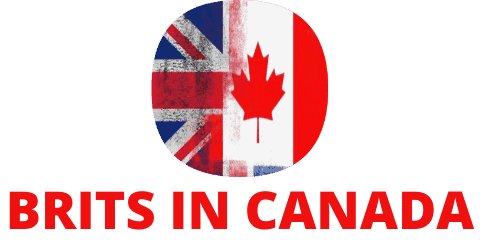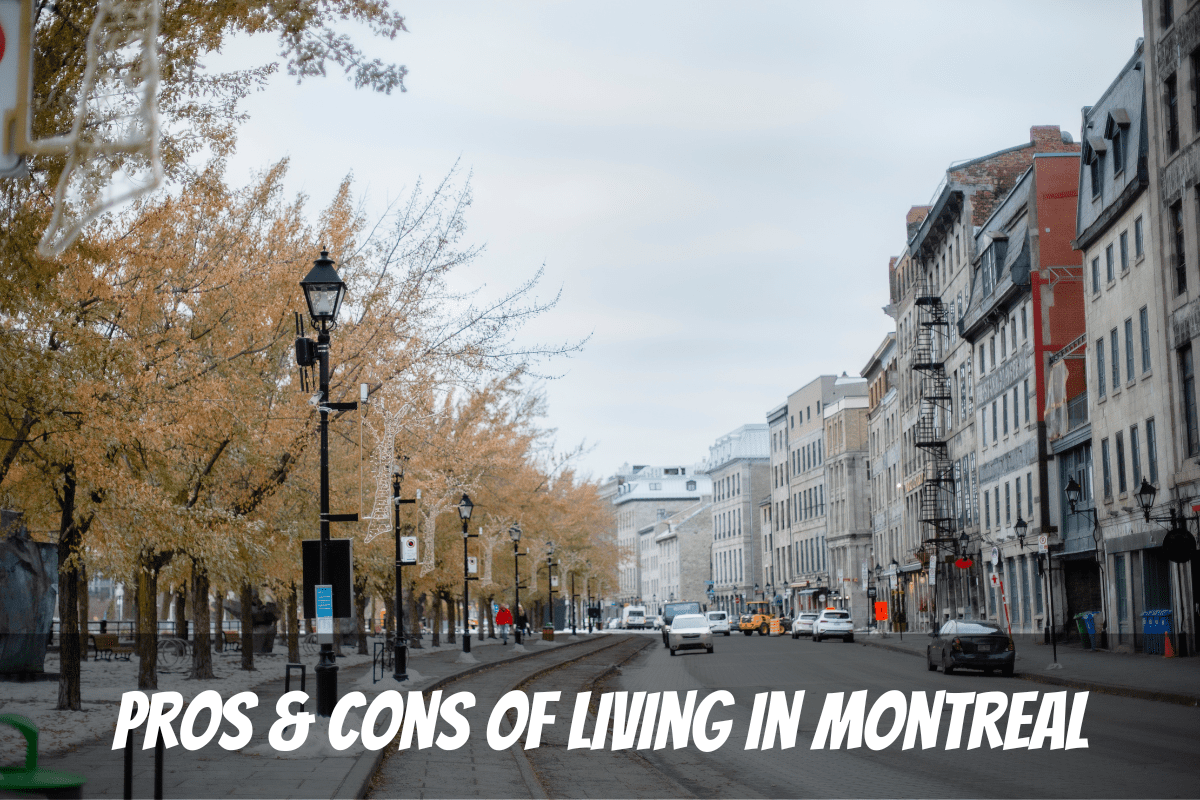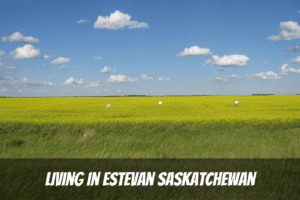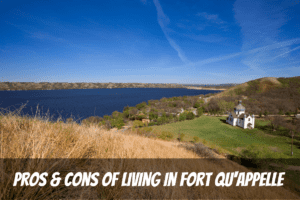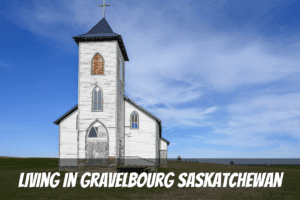If you feel that most Canadian cities have a bland north-American feel, then Montreal, with its European vibe, maybe the city for you.
Montreal seems to operate on a different wavelength from the rest of Canada. It is lively and vibrant with a great night scene. It is a university town and a great place for student life, but it is also very popular with families.
The cost of living in Montreal is low compared to other Canadian cities; if you have been scared off by the cost of living in cities such as Toronto and Vancouver, then Montreal could be a great choice for you.
Montreal’s official language is French, but English is also widely spoken (see more on this in section 13 below). Moving to Montreal could be the perfect opportunity to learn another language or for your children to grow up bilingual.
In this post, we try to give you the basic facts about living in Montreal, as well as the pros and cons from the point of view of people living there.
Montreal – The Facts
Montreal is the largest city in the Canadian province of Quebec. Quebec sets itself apart from the rest of Canada as the only region with just one official language, which is French. The rest of Canada has two official languages, English and French.
| Montreal | |
|---|---|
| Province | QC |
| Population | 1,762,949 |
| Population Growth 2016/2021 | 3.40% |
| Population Born in UK 2016 Census | 10,385 |
| Time Zones | EST (UTC -5) |
| Elevation | 27 |
| Ave Cost Real Estate Jan ’22 | $517,500 |
| Sales Tax | 5% GST + 9.975% QST |
| Prov Income Tax Low Band* | 15% |
| Prov Income Tax High Band* | 25.75% |
| Crime Severity Index 2020** | 67.29 |
| Violent Crime Severity Index 2020** | 92.11 |
*Note: Provincial Income Tax is Paid in Addition to Federal Income Tax
** Canadian Ave 73.4 & 87.0 (Lower is Better)
Where is Montreal?
Montreal lies in southeastern Canada around a one-hour drive from the US border. The city is centred on the Island of Montreal where the St Lawrence and Ottowa rivers meet.
What Is The Culture of Montreal
Montreal has a large and diverse immigrant population, with more than half of its population born outside of Canada (based on 2016 census data). Its immigrants originate from Europe, Africa, Asia and the Americas in close to equal proportions.
What Is The Weather Like In Montreal?
Montreal has a well-deserved reputation for being one of the coldest cities in Canada. It has an average January temperature of around minus 9 DegC, and that is before the wind chill kicks in! There will almost certainly be snow on the ground from December and sometime in November and April as well.
If you are from warmer climes, it can take a while to get used to the cold. But with time you may well come to appreciate crisp, bright cold weather. Especially if you make an effort to embrace outdoor activities such as skating and skiing.
The most important thing is to prepare for the weather and invest in some really good winter clothing. Remember the Norwegian saying “There’s no bad weather, only bad clothes.”
Also make sure your car is ready for winter, including switching to winter tires. This is compulsory in Quebec from December to mid-March.
Anyway, enough about winter. Spring and fall weather is normally mild and pleasant, although it can be unpredictable with occasional storms. Summers are warm/hot and can be humid, which is typical for many of the cities in the east.
| Montreal | |
|---|---|
| Annual Rainfall (mm) | 799 |
| Annual Snowfall (mm) | 209 |
| Ave Hours Sunshine/Day | 5.6 |
| Ave Jan Temp (DegC) | -10 |
| Ave July Temp (DegC) | 21 |
Is Living In Montreal Expensive?
The cost of living in Montreal is significantly lower than in most Canadian cities. Property rent is low, and property prices are around half of those in Toronto.
Public transport is cheap, and the universities in Montreal have some of the lowest fees in Canada. Also, if you are a working parent, you can benefit from subsidized childcare provided by the Government of Quebec.
However, it’s not all good news, as sales tax is amongst the highest in Canada. Provincial income tax rates are also high, especially at the higher tax bands.
Wages are also lower than national averages, but they aren’t sufficiently low to wipe out the benefits of lower costs. Overall you are likely to have a higher level of disposable income than in other Canadian cities.
Does Montreal Have A Strong Economy?
Montreal has a broad-based economy that has grown steadily in recent years. It has large manufacturing, retail, and business service sectors and is home to one of the largest aerospace centres in the world.
It benefits from its commercial transport connections. It is home to Canada National Railways headquarters and has the world’s largest inland port.
Montreal is also the biggest producer of French-language film, radio and TV in Canada. In addition, the old town is a popular location for period productions.
Does Montreal Have Good Transport Connections?
It can be argued that Montreal has the best transport connections of any Canadian city. Its transit system is one of the best in North America, and it is quite possible to live there without owning a car.
City Transit In Montreal
For travel within the city, Montreal has trains, buses and a subway system known as The Metro. The Metro is exceptionally well designed and integrates well with the other transport modes.
Transit costs are low, and it’s possible to buy a pass which will give you unlimited travel on all buses and metro lines for a month. If you pay full price the pass will cost you around $90, and cheaper concessionary passes are available for many people.
Montreal is in the process of constructing a new rapid light rail system known as REM. It will connect many suburbs to downtown Montreal and provide direct services to the airport. It will be independent of the current Metro system, and once completed (estimated 2026) Montreal will be the best city for transit in Canada.
In addition to the subway and buses, commuter rail services (known as AMT) connect the city to the outlying areas of Montreal.
Airports Near To Montreal
Montreal’s largest passenger airport is the Montreal Trudeau International Airport located around 20km west of Montreal downtown. It is Canada’s third-largest passenger airport, with almost 20 million passengers per annum (pre-COVID). Around 60% of flights are international.
Your other option for international travel is Plattsburgh International Airport, which is around 100km from Montreal across the US border.
Saint-Hubert Longueuil Airport lies around 16km east of the downtown area for domestic flights.
Driving In Montreal
Traffic congestion in Montreal can be very bad, and parking is difficult. This is basically the same as for any major city. The difference is that public transport in Montreal is so good you don’t need a car. The Metro also doesn’t tend to get stuck in the snow in the winter!
One interesting fact (definitely worth knowing) is that you aren’t allowed to turn right at a red light anywhere on Montreal Island. This is apparently due to high pedestrian numbers, combined with narrow streets and sidewalks, which can affect the driver’s view of the street.
Biking In Montreal
Montreal is a great place to bike in the summer. If you don’t have your own bike, you can use one of the thousands of Bixi rental bikes. These can be collected & deposited at over 700 stations throughout the city. If you’re not keen on the idea of tackling the hills within the city, they even offer the option of electric bikes.
RESO Underground City Network Montreal
RESO is a 33km network of underground walkways running beneath the heart of Montreal. It connects shopping centres, offices, hotels, universities, and even sports venues and is integrated with the Metro system.
However, it is much more than a series of walkways. It’s really more of an underground mall, with shops, movie theatres and other entertainment venues.
Much of it is temperature-controlled, and it provides a welcome escape from the bitter cold in the winter and the heat in the summer.
What Outdoor Activities Can I Enjoy Living In Montreal?
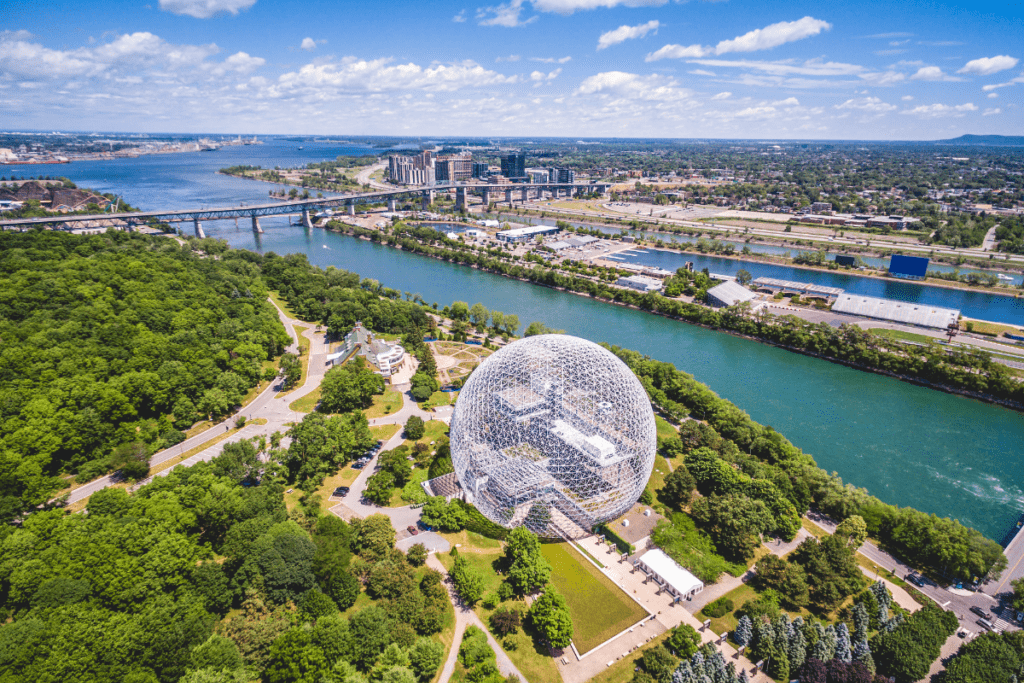
Montreal has many parks with trails for walking and biking in the summer months and snowshoeing or cross-country skiing in the winter.
A favourite with cyclists is the Lachine Canal bike path. This popular and beautiful urban trail follows the Lachine Canal for around 14km. It is well maintained and quite flat, so you don’t need high fitness levels to enjoy it.
Mount Royal Park is home to Mount Royal, a small mountain that dominates the centre of the city. The park has a network of paths open year-round. It is also a popular location for tubing and ice skating and for barbeques and concerts in the summer.
If you like to downhill ski, then there are many options within easy reach of Montreal. These are a few of the best options.
- Mont Tremblant is the first choice for many, with over 100 runs for all ski levels. It is around a 1.5-hour drive from Montreal. It has a good range of shops, restaurants and lodges, making it a good option for a weekend away.
- Saint Sauveur is a smaller resort, around a 1-hour drive from Montreal. It is a good resort for beginners and intermediates and offers night skiing.
- Bromont is also around 1 hour from Montreal, with great options for beginners and intermediates. It has the best range of night skiing in the region.
- Owls Head is another smaller resort around 1.5 hours from Montreal. It is best known for its incredible views over Lake Memphremagog.
The ski areas are also great summer locations for hiking and mountain biking.
Does Montreal Have Good Entertainment & Nightlife?
Montreal has a reputation for amazing nightlife, becoming supercharged after dark. Amongst other things, it offers jazz bars, dance clubs, music venues, and rooftop bars, all with a very distinctive European feel. The high number of students living in Montreal also adds to the energy of the city.
The streets are literally bursting with bars, restaurants, live venues and packed nightclubs with amazing DJs. You have everything from elegant cocktail bars and world-class cuisine to underground hideaways and drag queen cabarets.
You will find Chinatown in Quartier Chinois, Little Italy northwest of the downtown area, and even Little Portugal, located just north of Mount Royal Park.
Crescent Street in the west end is one of the main nightlife destinations, especially for tourists, anglophones and suburbanites. Here, you will find dozens of places to eat, drink and party.
Montreal has a packed calendar of events and festivals year-round. The biggest include the Grand Prix Montreal and the annual two-week/ two million people Pride celebration. There are food and drink festivals, celebrations of jazz, film, comedy and art, and even an electronic Igloofest.
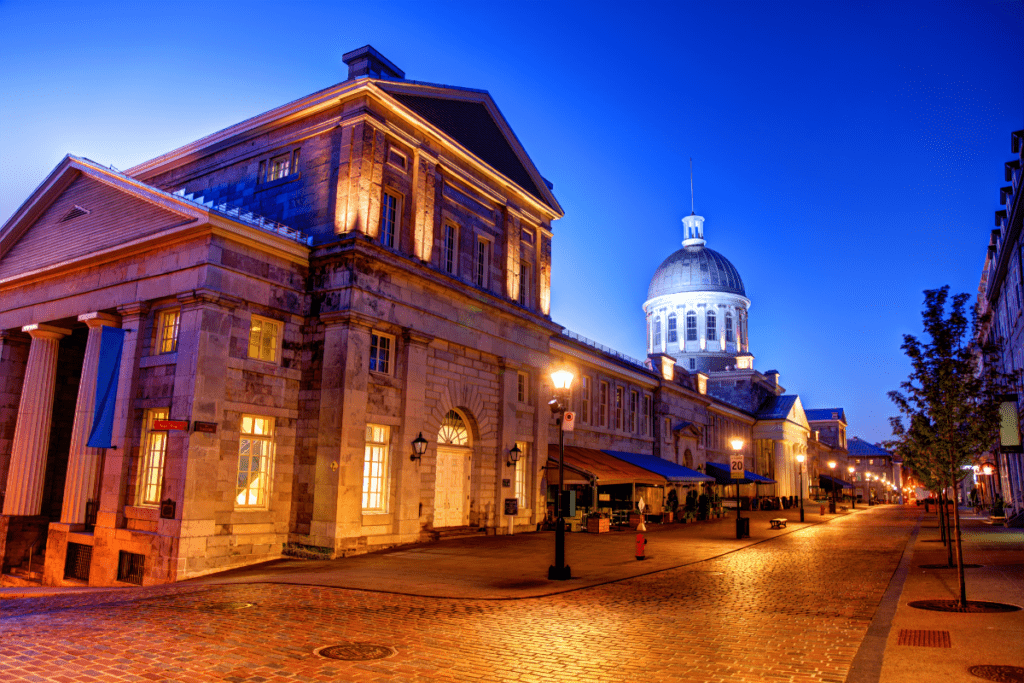
What Professional Sports Teams Does Montreal Have?
Montreal has three “premier” league professional sports teams.
Firstly (many would say most importantly) are the Montreal Canadiens who are the only Quebec team to play in the National Hockey League (NHL).
If you are new to Canada and new to ice hockey, then I would highly recommend you try going to a game. It is an incredibly fast and exciting game and something of a national obsession in Canada.
If soccer is more your thing, then you are in luck. CF Montreal is one of only three Canadian teams playing in the North American Major League Soccer (MLS).
Finally, the Montreal Alouettes compete in the Canadian Football League (CFL). Note that in Canada “football” refers to “American football” and not soccer.
Which are the Best Neighbourhoods in Montreal?
Best Neighbourhoods In Montreal – An Overview
Old Montreal is Montreal’s oldest (and touristy) neighbourhood. Here you’ll find the majority of the city’s attractions.
Downtown is the spot to live if you enjoy lively nightlife, galleries, and the adrenaline rush of being in the center of it all.
Le Plateau-Mont-Royal often referred to as Hipster Haven, is recognized for its high-quality coffee houses, luxury businesses, graffiti artists, and a high concentration of bicycles. It has a very French feel to it.
Mile End is fashionable, creative, and cosmopolitan, comparable to the Plateau but much more rapidly developing. This is the place to get the tastiest bagels in town.
The Village is a vibrant area with a vibrant nightlife that has recently been renovated. It also has one of the country’s largest LGBT communities.
Here are some of our choices for the best neighbourhoods in Montreal.
Plateau Mont-Royal
The Plateau Mont-Royal, situated on the hill of Montreal’s famed Mont-Royal, is a stylish neighbourhood with numerous places with diverse vibes. Hike up the slope for a spectacular sight of the city, or relax just at the bottom and sway to the music of the weekly tam-tam session.
Take a snapshot of one of Montreal’s classic row houses, which are especially colourful in this neighbourhood, or eat at L’Express. This renowned French café will give you the impression as if you’ve just stepped over the doorstep into Paris.
Stroll down Saint-Denis Street along Mont-Royal Avenue to get a sense of everything this authentically French neighbourhood has in store.
The Village
The Village, located right next to the Quartier Latin, is host to a dedicated residential neighbourhood, a retro antique shop culture, and a proving for innovative pubs and restaurants, in addition to known nightlife locations.
It is the symbolic core of Montreal’s gay and lesbian community, hosting the city’s annual Pride Festival and other outdoor celebrations along Sainte-Catherine Street.
Catch a concert at the famed Cabaret Mado, browse for mid-century contemporary furniture pieces at L’Antiquite Curiosite, or dine at Haitian culinary luminary, Agrikol to experience a flavour of the area for yourself.
Old Montreal
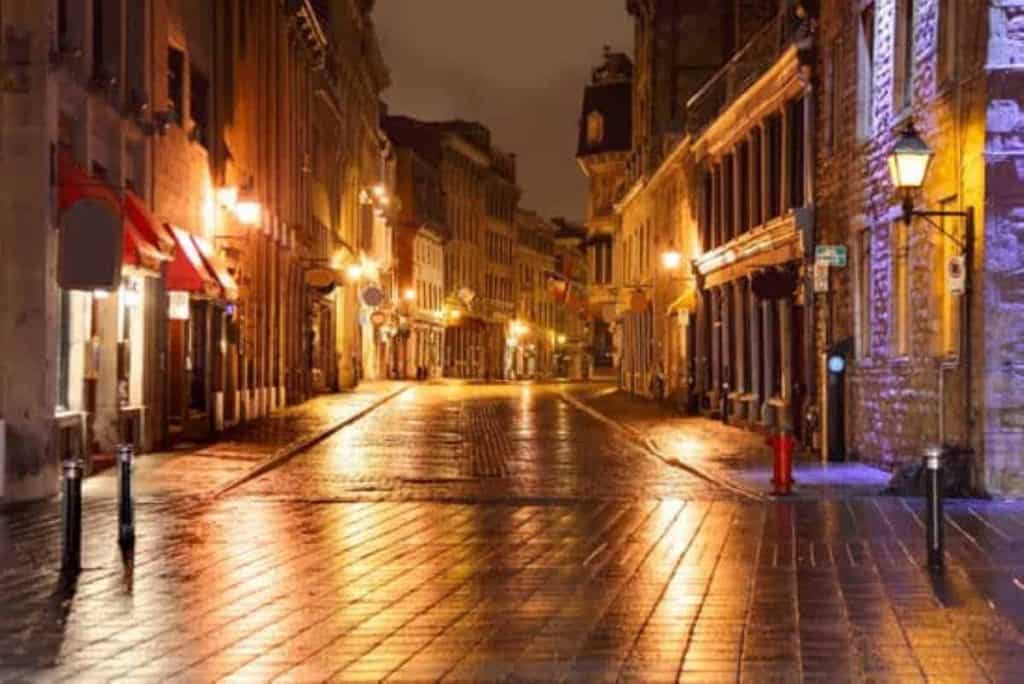
Old Montreal is the city’s oldest area, with its centenary buildings, cobblestone streets, and medieval European elegance. Stroll down the Old Port’s promenade and Rue de la Commune waterside.
Saint Paul Street is a lovely, tiny street with shops, eateries, and cafés. The area’s quaint nature and proximity to downtown come at a cost, and it is one of the most expensive neighbourhoods in the city.
Villeray
Villeray is a family-friendly area gradually evolving into one of the hippest in town. It has a great range of eateries, stores, cafés and attractive and charming residential neighbourhoods.
The area is home to Jarry Park, with its athletic fields, public swimming pool, pond, and parkland, which draws both locals and tourists.
Saint-Henri
Saint-Henri, a small and active neighbourhood on Montreal’s southwestern edge, has spruced up in recent years, attracting stylish fresh graduates looking for a dynamic and cheap area.
Saint-Henri now houses a number of the city’s trendiest eateries, bars, and cafés. In addition, there are several charming squares, colourful residential streets, and many Art Deco structures, notably Atwater Market.
Rosemont / Petite Patrie
These two similar neighbourhoods are lively regions of the city. Here you will find Little Italy and the Jean-Talon Market, Montreal’s biggest farmers’ market.
Laval and Kirkland
These are both popular neighbourhoods a little further out from the city. The property is a little more moderately priced here.
There are countless other suburban/commuter-belt communities where prices are reasonable. The benefit of the Montreal transport system is that it provides easy city access from most areas within the Greater Montreal Area.
Is Montreal A Safe Place To Live?
Montreal’s crime rates are surprisingly low for a city of its size. Violent crime rates are only marginally above the national average (unusual for a large city), and non-violent crime rates are actually below the national average.
There are of course neighbourhoods where you should take extra care, but most residents say they feel safe living in Montreal compared to other cities.
Do I Need to Speak French To Live In Montreal?
It is possible to get by living in Montreal if you don’t speak French. For example, a student living close to one of the universities probably won’t have any issues. However, if you plan to settle and work in the city, you will be at a distinct disadvantage if you only speak English.
The majority of jobs will require you to be bilingual, although there are job opportunities for those that only speak English. If you manage to land one of these jobs and live in the right areas of the West End, then you can get by. However, if you don’t learn French, you will miss out considerably on what the city has to offer. Also, there will be people that can’t (or won’t) speak English to you, especially as you travel away from the city.
What Are the Pros And Cons Of Living In Montreal?
Pros Of Living in Montreal
- Low cost of living relative to income
- It could be an opportunity to learn French.
- City is compact
- Great transit
- Historical building/quaint
- Laid-back relative to many cities
- Incredible night-life
- Diverse population
Cons Of Living in Montreal
- High taxes
- Cold winters
- Better if you speak French
Sources of Data Statistics Canada & Canadian Real Estate Association
